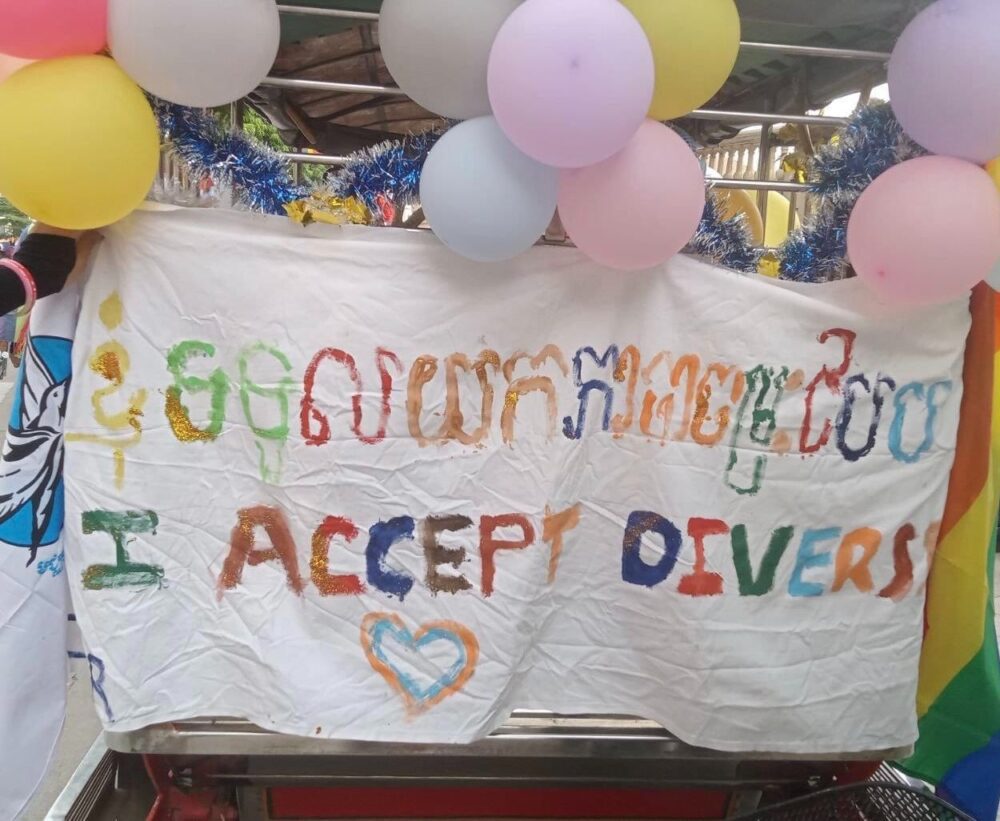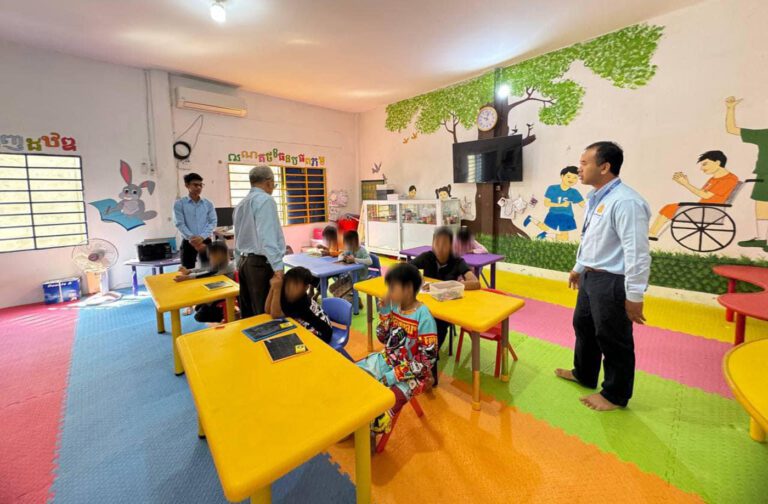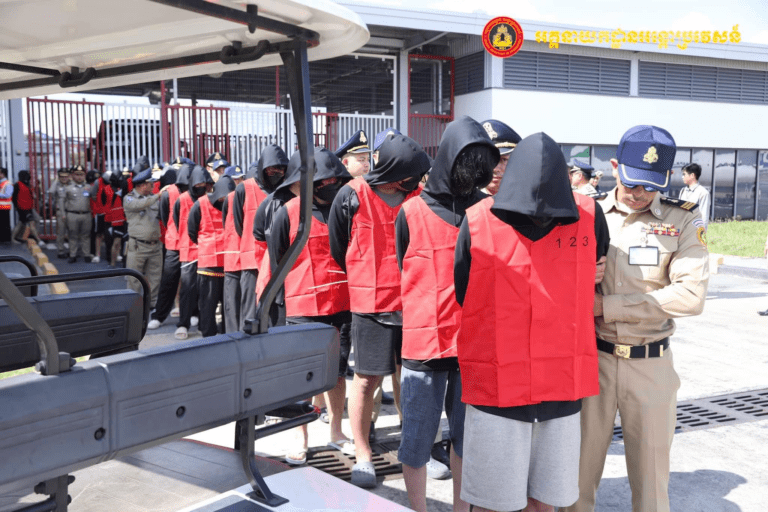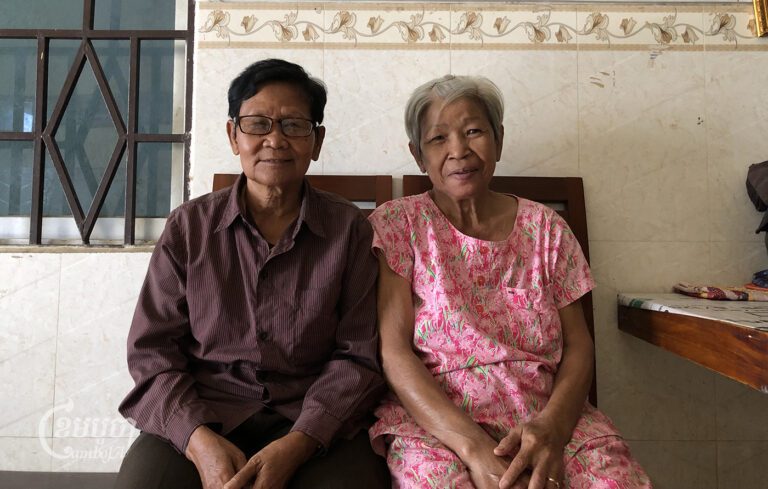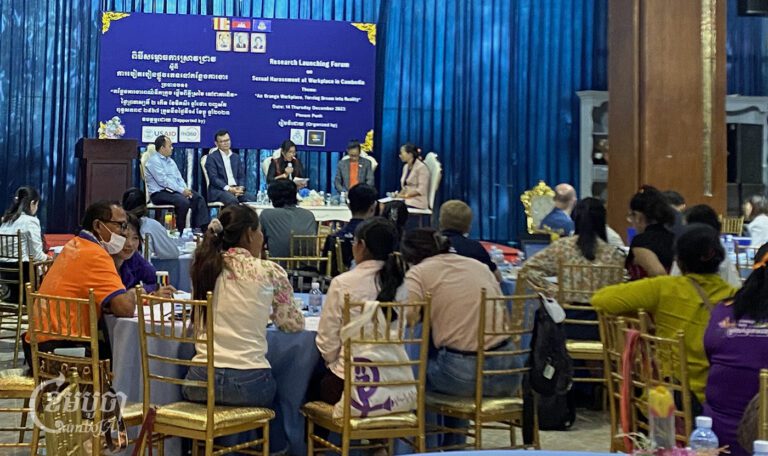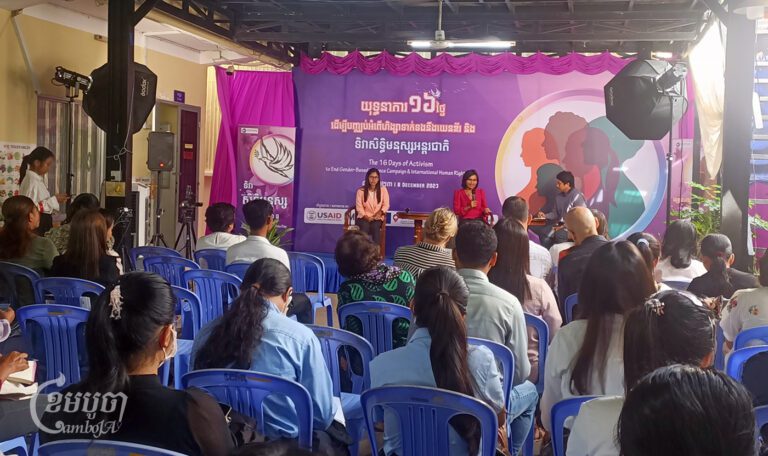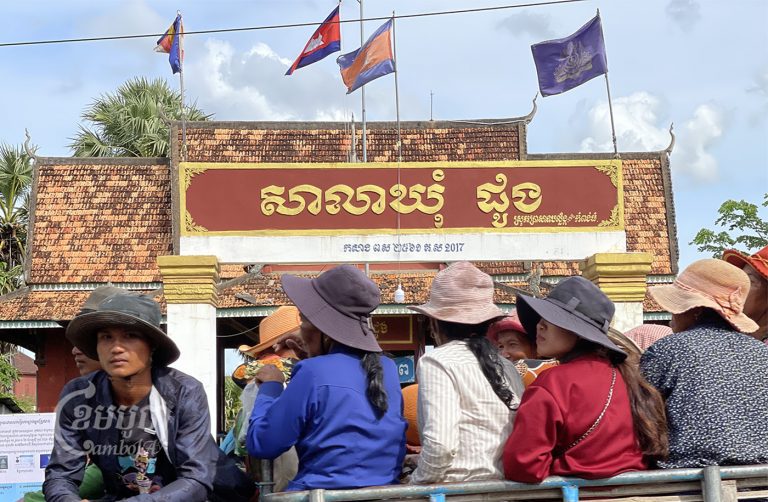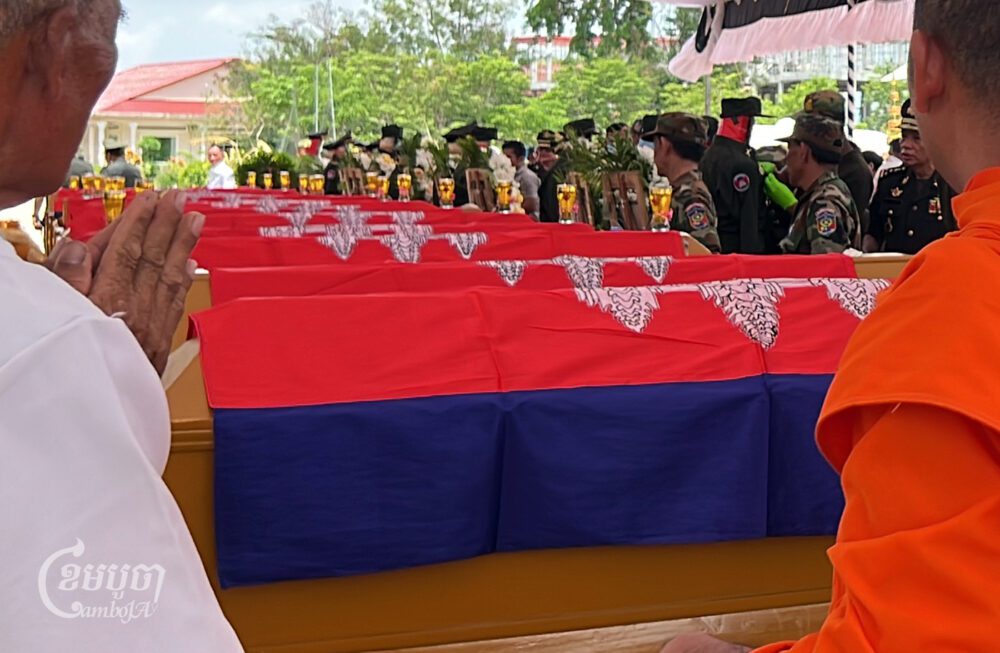Last month, concerned about a reported rise in HIV cases, Prime Minister Hun Sen said that there is no discrimination against the LGBTQ+ community in Cambodia while reaffirming there would be no marriage equality law.
The prime minister said on June 27 during a meeting with nearly 20,000 workers in Kampong Speu that there had been 1,400 new cases of HIV infection reported in 2022, an increase of 300 cases from 2021. Most of the cases that were reported involved gay men.
“There is one thing that is worse than COVID-19, and that is AIDS,” he said. “I always wonder how they (gay men) get together.”
“We also do not discriminate against LGBTQ+, lesbians, or gay men, but what we are worrying about is the recent spread of HIV, which is more prevalent among LGBTQ+,” he added.
Hun Sen met with workers at Phnom Penh and Kandal on June 24 and reiterated that Cambodia does not allow marriage equality for LGBTQ+ people, but said that they can still love and live with each other without any guilt. He warned that they should protect themselves from infectious diseases.
“In our country, there are no legal rights [for marriage] and also no ban [on LGBQ+ people]. We respect their rights, but we do not issue laws [to allow their right to marriage],” he said.
Members of the LGBTQ+ community saw the situation differently.
Sun Raksmey, 25, who identifies as LGBTQ+, said the biggest challenge for her community is discrimination from family, friends, and society, especially when there is no law on equality in marriage. She continued that opposite-sex marriage is recognized, but same-sex marriage is not given teh same consideration or valued, highlighting a gap in people’s rights.
“Marriage equality for LGBTQ+ people should exist,” she said. “It is good for us who are LGBTQ+ people; it means that our marriage is socially recognized by law. It is like giving us a value; we LGBTQ+ people are also a part of society. I also need recognition.”
She said that in addition to facing pressure from society and family after coming out as members of the LGBTQ+ community, LGBTQ+ people also experience discrimination if they have illnesses, including HIV/AIDS.
“Not only for LGBTQ+ people but also for opposite-sex partners, if they have many partners and do not have self-protection or do not learn about sexual health problems, there will be illness,” she said. “So it means that this is something that everyone—not just one group—must know how to protect against and be careful about.”
A statement from the Independent Expert on Sexual Orientation and Gender Identity (IE SOGI) to Cambodia after a visit from January 10–20, HIV prevalence is high among trans women (9.6%) and men who have sex with men (4%) compared to the general population (0.6%).
Ouk Puthpanha, who identifies as a member of the LGBTQ+ community, said that social discrimination against LGBTQ+ people still exists and he is particularly concerned when reports show that AIDS is on the rise among LGBTQ+ people.
“HIV/AIDS does not just happen to LGBTQ+ people; it can happen to anyone. Citizens who do not know much about it become more discriminated against [us] when they hear this news,” he added.
He wants to see a marriage equality law to ensure that LGBTQ+ people can fully exercise their rights and can prove they are legal partners.
However, Kata Orn, spokesperson for the Cambodian Human Rights Committee, told CamboJA that the lack of a law on same-sex marriage for LGBTQ+ people depends on the social context in Cambodia today, with each law being in line with national interests, social interests, traditions, culture, and religion.
“We respect their rights, and we want to protect their rights and freedoms, but we also need to think about society and how acceptable it is,” he said. “Making a law that affects society is wrong. Our laws benefit society. We need time to educate and understand the mindset of the people. We are in the process of considering.”
He said that LGBTQ+ people’s rights are now widely respected in the Cambodian community and society, meaning that LGBTQ+ people are free to live together, just like people of the opposite sex, and it may even be feasible to adopt a kid from a relative.
Regarding sexual issues, he added that the Ministry of Health as well as community organizations have made efforts to educate people on how to live together as a same-sex partner and prevent sexually transmitted diseases.
“This education is still ongoing because we need to think about health as a whole. What the Prime Minister says is what he thinks about the health of the citizens, and LGBTQ+ people are also citizens,” he said.
Ouk Vichea, deputy Director at the National Center for HIV/AIDS, told CamboJA that compared to HIV infection between men and women from 2010 to 2021, the rate of new infections among women decreased by 72%, while the rate of infection among men increased by 35%. Among the growing number of men are young people aged 15 to 24.
In the new 14,000 cases, 83% were in the at-risk group, which included gay men, transgender people, and entertainment service workers.
“We did not blame them, but we encouraged them to receive services (HIV test),” he added.
Lim Borin, a project coordinator for the SOGIESC project at the Cambodian Center for Human Rights, said that while Cambodia has no laws to prohibit or punish LGBTQ+ people, there is also a lack of specific laws to protect them. He added that LGBTQ+ people can realistically live together or have a traditional marriage, but they cannot get legal permission to do so. Because of this, their family rights, including complete adoption, cannot be fully fulfilled.
“Equality in marriage laws for same-sex couples is very important for LGBTQ+ people,” he added. “Most of them believe that the equality of marriage law can contribute to the elimination or reduction of discrimination against them as well as the exercise of the right to a fully-fledged family protected by law.”


